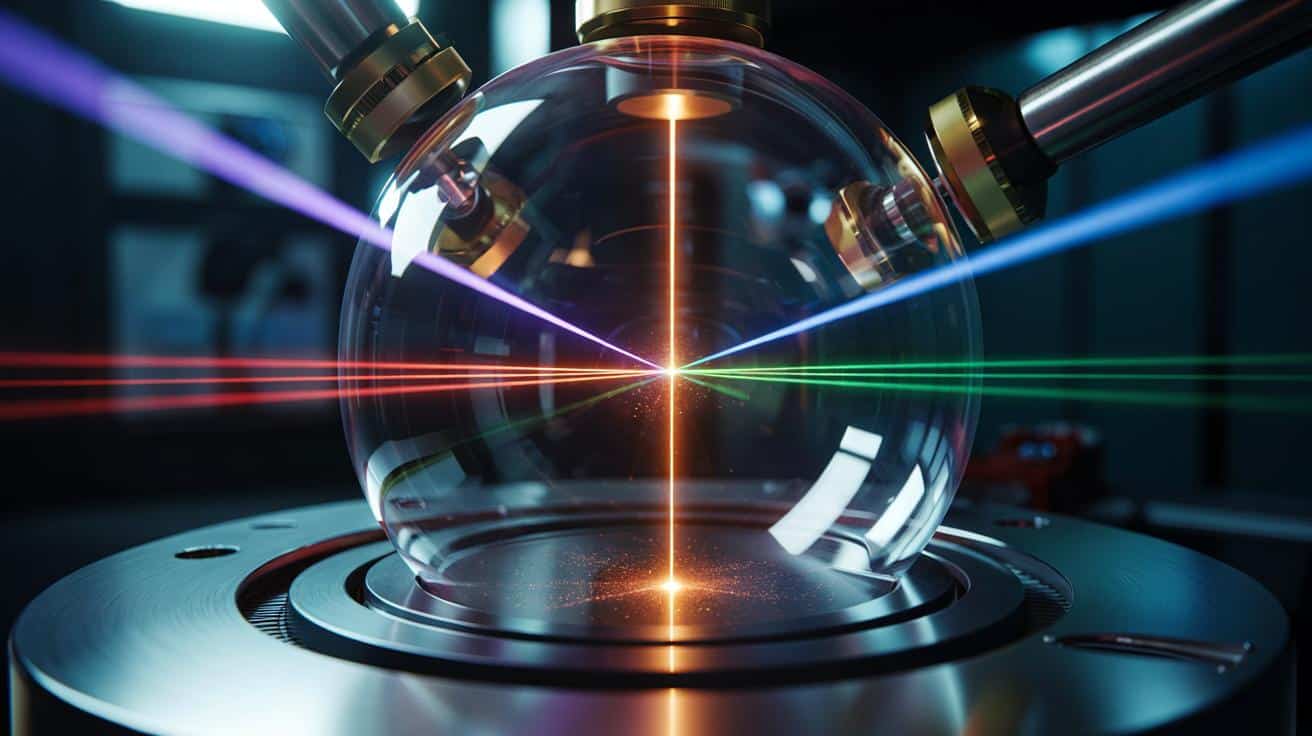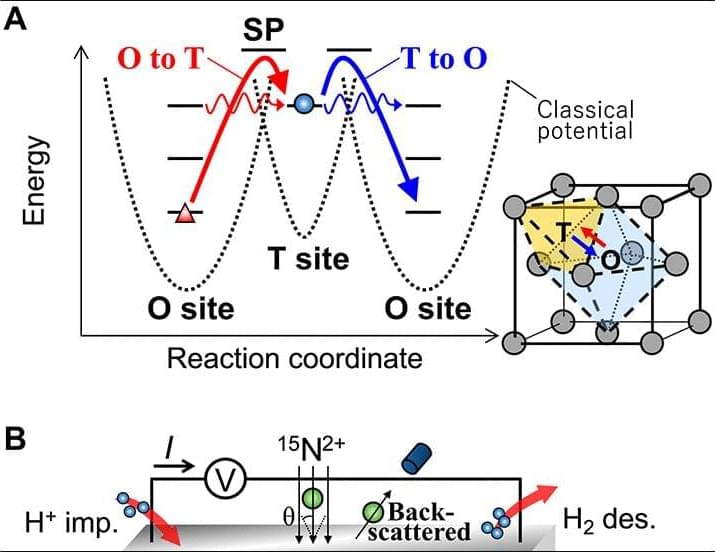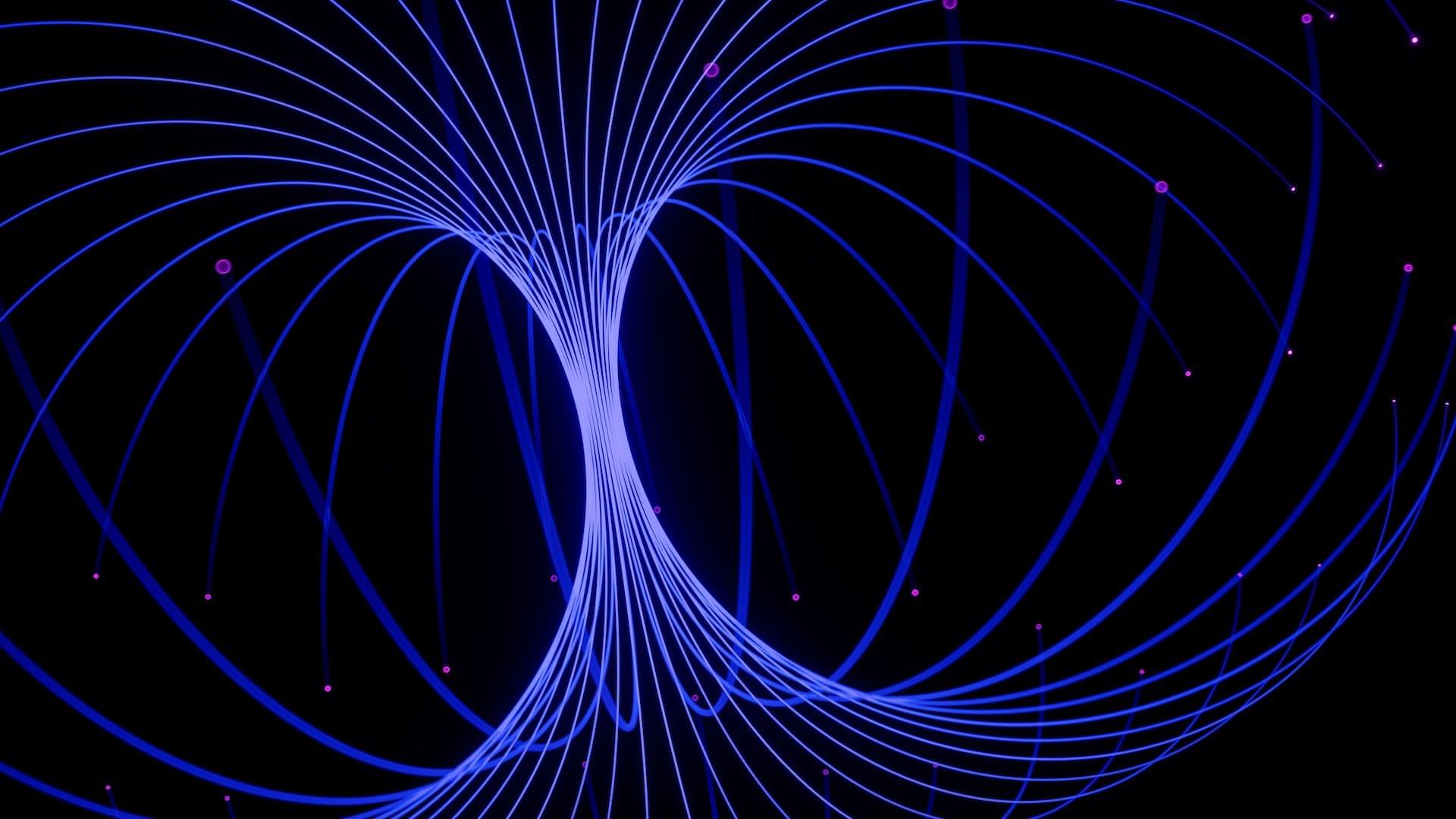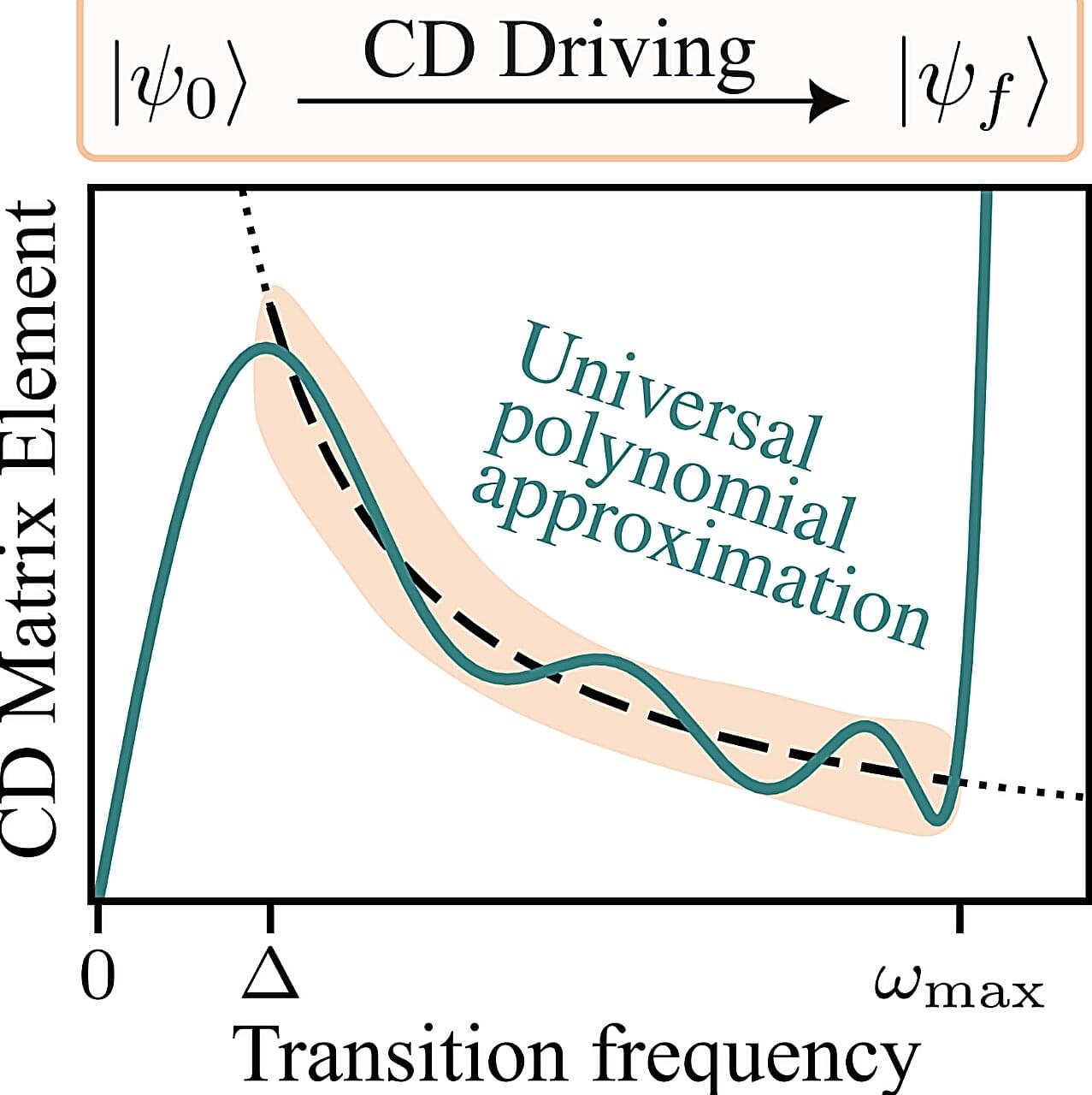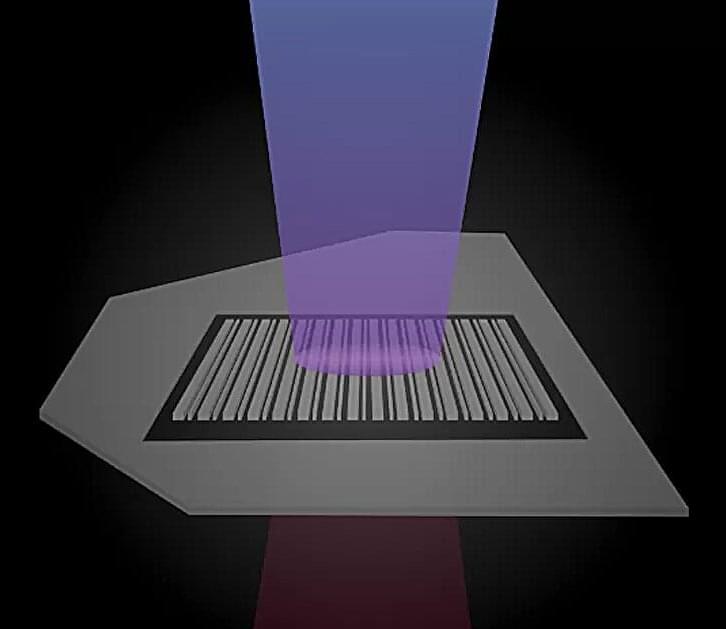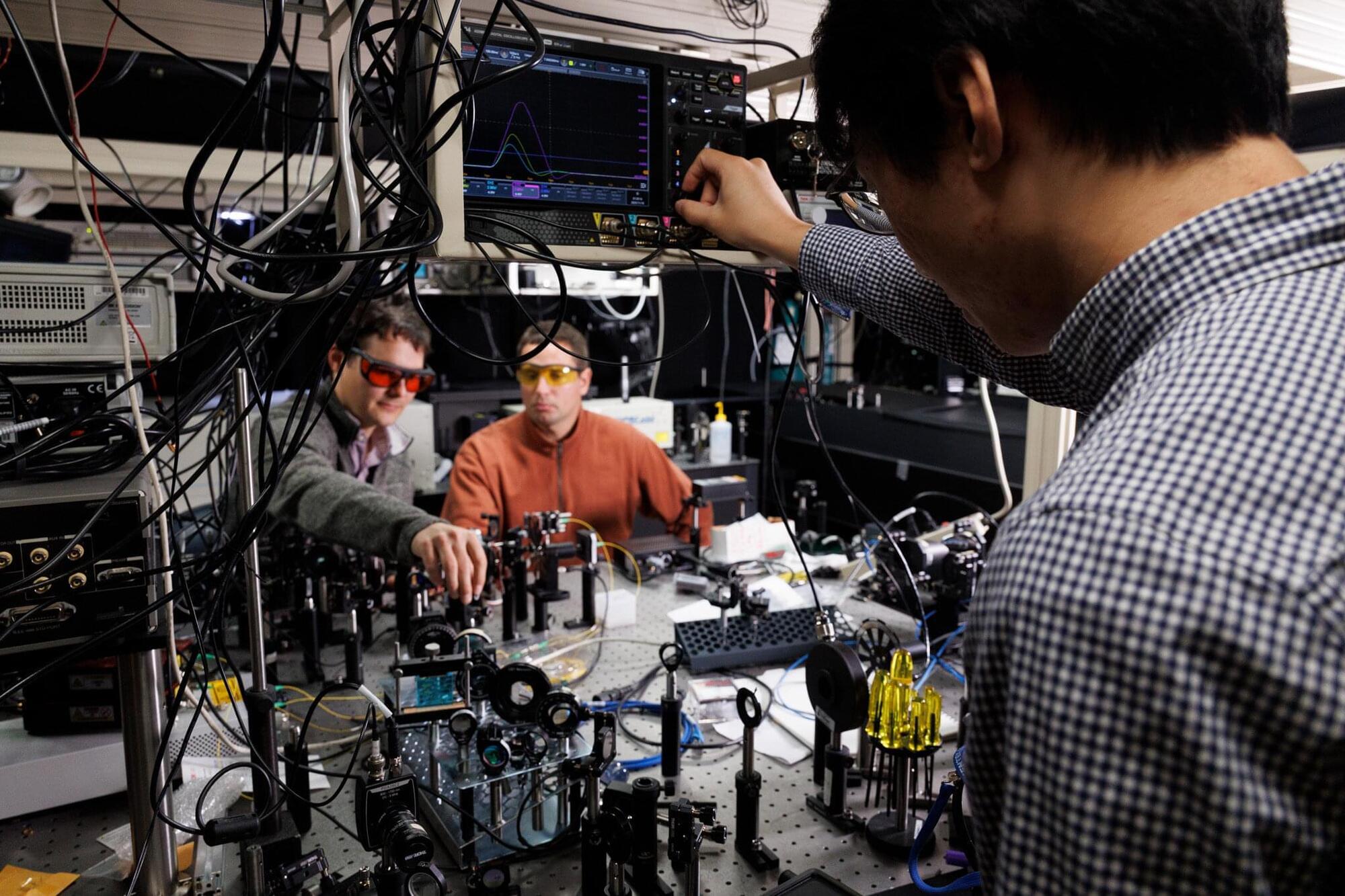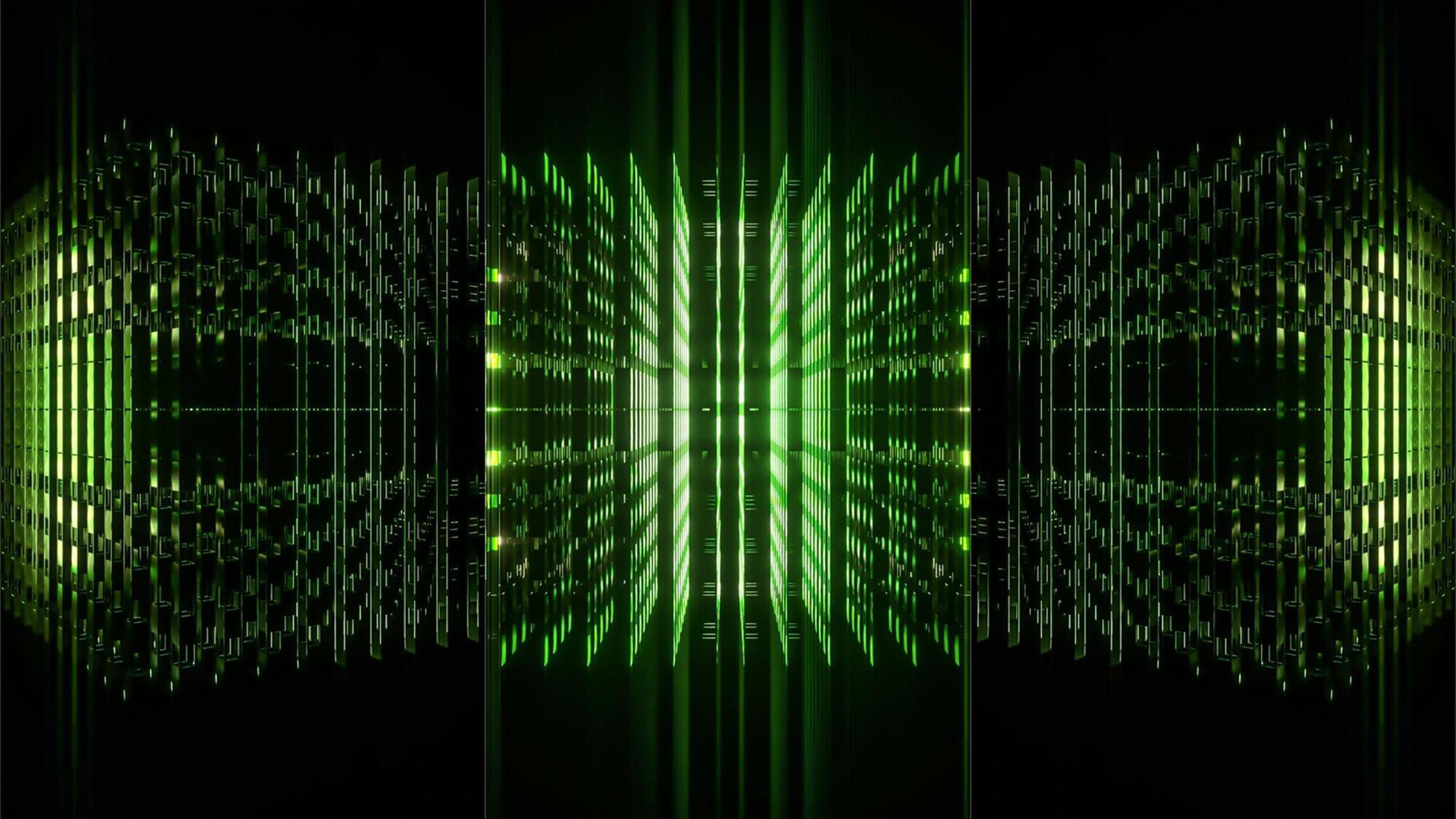Hydrogen in materials finds various applications such as hydrogen storage and heterogeneous catalysis (1–3). Hydrogen diffusion is an elementary step for hydrogen storage and reactions and has long been studied to date. Hydrogen, as the lightest and smallest atom, manifests nuclear quantum effects including the zero-point vibration, discrete vibrational energy levels, and quantum tunneling (4). These quantum effects are believed to have a substantial impact on diffusion at low temperatures.
The interaction of hydrogen with surroundings such as phonons and electrons of host materials can be crucial for the hydrogen tunneling. It has been theoretically suggested that whereas phonon effects associated with lattice deformation bring about a positive temperature dependence in the tunneling rate, the effect of nonadiabatic electron-hole pair excitation due to the presence of the Fermi surface causes a slightly negative temperature dependence in metals (5–10). From an experimental viewpoint, however, such temperature-dependent tunneling was rarely observed except for some cases of H on metal surfaces (11–19). As for three-dimensional systems, the tunneling was only mimicked by muon, a light isotope with about one-ninth the mass of H, in the spin relaxation experiments in simple metals (20–23). Detailed experimental data of the temperature-dependent hydrogen hopping rate at low temperatures in materials are still lacking to comprehensively elucidate the quantum nature of hydrogen.
Absorbed hydrogen in metals occupies interstitial lattice locations. Figure 1A illustrates the face-centered cubic (fcc) lattice structure, where tetrahedral (T) and/or octahedral (O) sites are preferred by hydrogen. Hydrogen atoms are known to thermally diffuse between stable sites via a metastable site at elevated temperatures. At low temperature, the quantum nature appears, and the tunneling between them might also play a decisive role. Although it is recognized that the potential shape is crucial for the tunneling rate (24), the influence of the interaction with surroundings on the tunneling in an asymmetric potential between inequivalent sites such as the stable and metastable sites has hardly been considered even theoretically (25). In this regard, experimental identification of the hopping pathway is also important to address the quantum nature of hydrogen.
